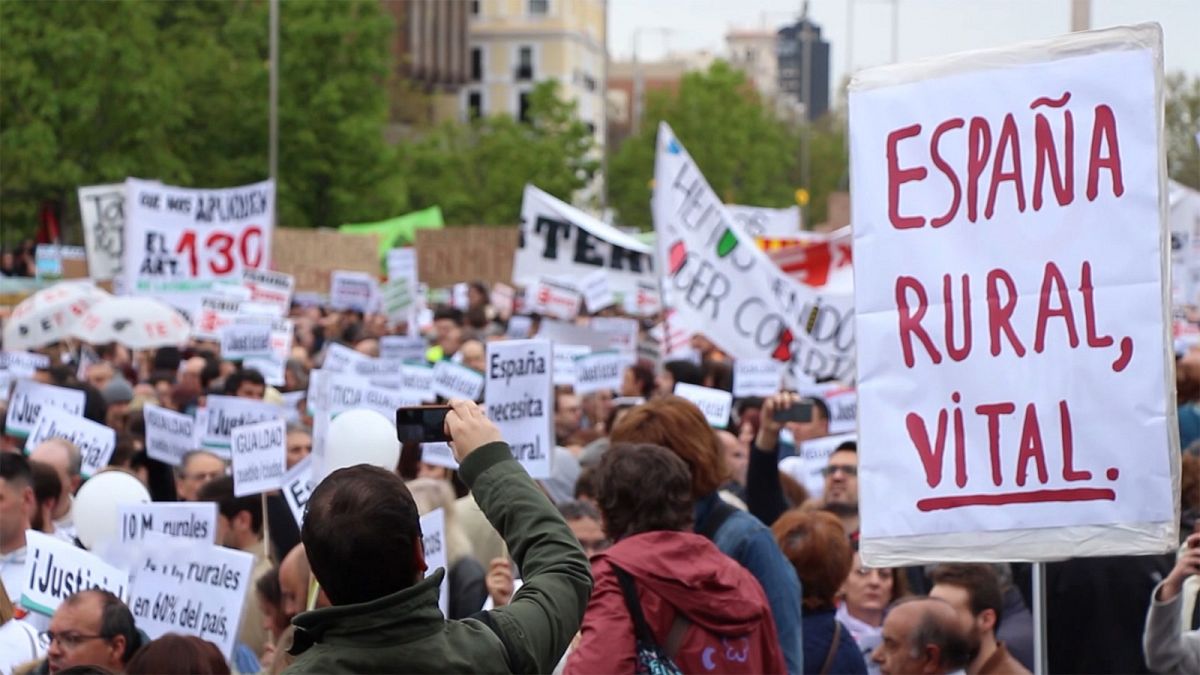With an election nearing, rural issues are gaining increasing prominence in Spain
With Spain in the midst of an election campaign, political leaders seem very interested in so-called empty Spain - the name given the country's rural areas with fast declining populations. But in the city of Zamora, citizens are asking; is this real concern or electoral strategy?
In the provinces that make up "empty Spain" fewer votes are needed for election, a mechanism intended to help boost representation. Yet it's something that has historically benefited big parties like the right-wing People’s Party or the Socialists. This year, with the fragmentation of the right-into three main parties, PP, Center-right Citizens and extreme right VOX) - all that may change.
The province of Cuenca belongs to the so-called "Southern Lapland", a large part of Spanish territory made up of ten provinces. Its population density is below 8 inhabitants per kilometer, the lowest in Europe and surpassed only by parts of the original Lapland, in Finland.
Benjamin Prieto is the president of the Diputación de Cuenca and for more than 20 years, the Popular Party mayor of a village of just 248 inhabitants. Accustomed to his party winning these areas, the new political landscape is posing some uncertainties for him.
“The voters want a center-right option, there is a distribution of votes in territories where “the natural majorities” are for the center-right which is the Popular Party, but those majorities can be altered, thus pushing their votes to their second choice, that is not exactly what the voter wanted”.
Spain's congress has 350 seats. In the less populated areas, where only 2 to 5 seats are elected per provice, 101 seats are up for grabs. That’s almost as many as in the country's five most populated provinces; Madrid, Barcelona, Valencia, Sevilla and Alicante.
The Spanish electoral system uses the D'hondt law which is not proportional and tends to benefit the parties with the most votes allowing for majorities and stability in Parliament.
Despite the parties’ allegedly growing interest in rural areas, for young voters like Almudena, 28 from Huete expectations are still very low.
"If young people like me move to other cities, our children will grow up in other cities and then the village will die. I think we don't have 100% of opportunities right now”.
Some, like Ana Morillos, spokesperson for the Citizen Platform Viriatos Zamora, are fighting to ensure that their land is not forgotten.
"Politicians can’t provide a solution to the abandoned Spain," she says. All the measures being discussed right now are just electioneering measures. They, the politicians, are responsible for creating this abandoned Spain. For some reason there is this program of depopulation," she added.
For political scientist Manuel Mostaza, a native of the unpopulated region of Sanabria, on the border with Portugal, the fact that Empty Spain is now even on the political agenda is progress.
"The arrival of a center wing party that is Ciudadanos, a party on most extreme left that is Podemos and now another on the extreme right that is VOX, means that the big parties are no longer certain, for example, of winning their seat in Zamora. This has had a positive effect. Finally, we are talking about Empty Spain. Now, winning a seat (Member of Parliament) in Zamora is not easy anymore for any party, and that allows this issue to find space on the political agenda."
I believe that in order to solve a problem, first it needs to be included in the political agenda,” said Mostaza.
